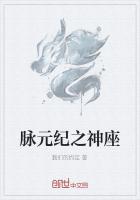"I spent six weeks on my honeymoon in having typhoid at Venice," she continued. "But even so, I look back upon them as some of the happiest weeks in my life. Ah, yes," she said, taking Rachel's arm, "you think yourself happy now, but it's nothing to the happiness that comes afterwards. And I assure you I could find it in my heart to envy you young people! You've a much better time than we had, I may tell you. When I look back upon it, I can hardly believe how things have changed. When we were engaged I wasn't allowed to go for walks with William alone--some one had always to be in the room with us--I really believe I had to show my parents all his letters!-- though they were very fond of him too. Indeed, I may say they looked upon him as their own son. It amuses me," she continued, "to think how strict they were to us, when I see how they spoil their grand-children!"
The table was laid under the tree again, and taking her place before the teacups, Mrs. Thornbury beckoned and nodded until she had collected quite a number of people, Susan and Arthur and Mr. Pepper, who were strolling about, waiting for the tournament to begin.
A murmuring tree, a river brimming in the moonlight, Terence's words came back to Rachel as she sat drinking the tea and listening to the words which flowed on so lightly, so kindly, and with such silvery smoothness. This long life and all these children had left her very smooth; they seemed to have rubbed away the marks of individuality, and to have left only what was old and maternal.
"And the things you young people are going to see!"
Mrs. Thornbury continued. She included them all in her forecast, she included them all in her maternity, although the party comprised William Pepper and Miss Allan, both of whom might have been supposed to have seen a fair share of the panorama.
"When I see how the world has changed in my lifetime," she went on, "I can set no limit to what may happen in the next fifty years.
Ah, no, Mr. Pepper, I don't agree with you in the least," she laughed, interrupting his gloomy remark about things going steadily from bad to worse. "I know I ought to feel that, but I don't, I'm afraid. They're going to be much better people than we were.
Surely everything goes to prove that. All round me I see women, young women, women with household cares of every sort, going out and doing things that we should not have thought it possible to do."
Mr. Pepper thought her sentimental and irrational like all old women, but her manner of treating him as if he were a cross old baby baffled him and charmed him, and he could only reply to her with a curious grimace which was more a smile than a frown.
"And they remain women," Mrs. Thornbury added. "They give a great deal to their children."
As she said this she smiled slightly in the direction of Susan and Rachel. They did not like to be included in the same lot, but they both smiled a little self-consciously, and Arthur and Terence glanced at each other too. She made them feel that they were all in the same boat together, and they looked at the women they were going to marry and compared them. It was inexplicable how any one could wish to marry Rachel, incredible that any one should be ready to spend his life with Susan; but singular though the other's taste must be, they bore each other no ill-will on account of it; indeed, they liked each other rather the better for the eccentricity of their choice.
"I really must congratulate you," Susan remarked, as she leant across the table for the jam.
There seemed to be no foundation for St. John's gossip about Arthur and Susan. Sunburnt and vigorous they sat side by side, with their racquets across their knees, not saying much but smiling slightly all the time. Through the thin white clothes which they wore, it was possible to see the lines of their bodies and legs, the beautiful curves of their muscles, his leanness and her flesh, and it was natural to think of the firm-fleshed sturdy children that would be theirs. Their faces had too little shape in them to be beautiful, but they had clear eyes and an appearance of great health and power of endurance, for it seemed as if the blood would never cease to run in his veins, or to lie deeply and calmly in her cheeks.
Their eyes at the present moment were brighter than usual, and wore the peculiar expression of pleasure and self-confidence which is seen in the eyes of athletes, for they had been playing tennis, and they were both first-rate at the game.
Evelyn had not spoken, but she had been looking from Susan to Rachel. Well--they had both made up their minds very easily, they had done in a very few weeks what it sometimes seemed to her that she would never be able to do. Although they were so different, she thought that she could see in each the same look of satisfaction and completion, the same calmness of manner, and the same slowness of movement. It was that slowness, that confidence, that content which she hated, she thought to herself. They moved so slowly because they were not single but double, and Susan was attached to Arthur, and Rachel to Terence, and for the sake of this one man they had renounced all other men, and movement, and the real things of life. Love was all very well, and those snug domestic houses, with the kitchen below and the nursery above, which were so secluded and self-contained, like little islands in the torrents of the world; but the real things were surely the things that happened, the causes, the wars, the ideals, which happened in the great world outside, and went so independently of these women, turning so quietly and beautifully towards the men. She looked at them sharply. Of course they were happy and content, but there must be better things than that.
Surely one could get nearer to life, one could get more out of life, one could enjoy more and feel more than they would ever do.
Rachel in particular looked so young--what could she know of life?
She became restless, and getting up, crossed over to sit beside Rachel.
She reminded her that she had promised to join her club.













